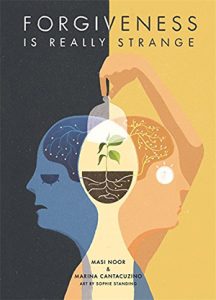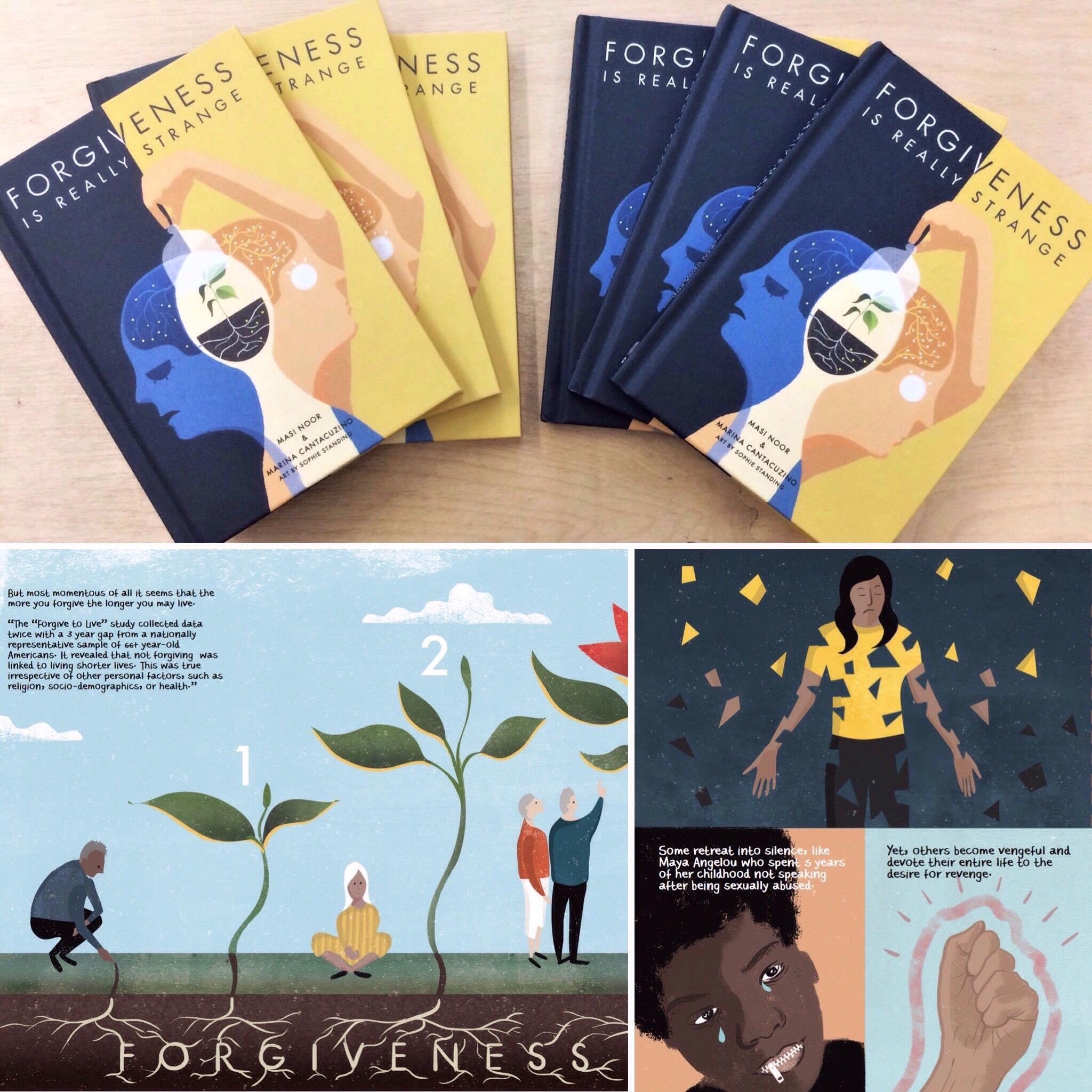Forgiveness is Really Strange

Author(s): Masi Noor & Marina Cantacuzino
Illustrator: Sophie Standing
Publisher: Singing Dragon
Year of Publication: 2018
Print Length: 64 pages
Genre: Graphic Novel & Comic Book, Non-Fiction / Psychology, Social Science
Topic: Forgiveness, Change, Human Psyche, Victimhood, Perpetratorhood, Conflict, Ethics & Morality, Human Nature & Character, Science, Violence & Mass Violence
What is forgiveness? What enables people to forgive? Why do we even choose to forgive those who have harmed us? What can the latest psychological research tell us about the nature of forgiveness, its benefits and risks?
This imaginative comic, based on science and real-life stories, explores the key aspects of forgiveness, asking what it means to forgive and to be forgiven. Witty and intelligent, it answers questions about the health benefits and restorative potential of forgiveness and explains, in easy-to-understand terms, what happens in our brains, bodies and communities when we choose to forgive.
“This beautiful graphic book is so important to communicate the F word: forgiveness. Forgiveness is so powerful because…it can break the cycle of revenge and re-humanize perpetrators of violence, and enable them to change…The list of powerful results of forgiveness is long, and for the first time is communicated in an engaging artistic way by one of my favourite charities with Dr Masi Noor. This book will become a moral guide to readers, including young people, on how to make the world a better place.“ — Professor Simon Baron-Cohen, University of Cambridge and author of ‘Zero Degrees of Empathy’

Table of Contents
An image-based book without table of contents.
Quotes:
“And why do some victims feel guilt, while perpetrators often don’t even feel the need to say sorry?“
“Would you forgive in order to live longer?”
“What would a forgiving response look like? Let’s meet the ordinary faces of some extraordinary forgiving:
“Do not take revenge in the name of my son.” This was Robi Damelin’s instinctive response after being told her Israeli soldier son had been killed by a Palestinian sniper.
“I had numbed out for years, putting myself in a deep freeze, and now I was beginning to defrost.” Madelene Black, who aged 13 was raped in London by two American students
“I still almost choke to say I forgive myself….” Kelly Connor, who aged 17 killed an elderly woman in a road accident. She has been struggling with self-forgiveness ever since.

Masi Noor is a social psychologist, Senior Lecturer in Social and Political Psychology. His main line of research is to understand the psychology of forgiveness: why people forgive, what enables them to forgive and what stops them to forgive. Most centrally, he is interested in studying when forgiveness may heal and when it may actually harm; and how forgiveness is best to be communicated. He developed the concept of Competitive Victimhood in 2008 and since then studied it across different conflicts settings, such as Northern Ireland, Chile, and Palestine-Israel. His work shows that competitive victimhood is a major obstacle to forgiveness and conflict resolution in general.
Source: https://www.keele.ac.uk/psychology/people/masinoor/#research-and-scholarship
More from Masi Noor in this library, click here.

Marina Cantacuzino isan award-winning journalist who has worked for most British mainstream publications including The Guardian, The Telegraph and Hello magazine. In 2003, in response to the invasion of Iraq, she embarked on a personal project collecting stories of people who had lived through trauma and injustice, and sought forgiveness rather than revenge. As a result, Cantacuzino founded The Forgiveness Project and started speaking widely about forgiveness and restorative storytelling. She was awarded an MBE for services to victims of trauma and abuse in 2021. Her latest book, Forgiveness: An exploration released in 2022.
Source: https://www.flf.co.za/participants/marina-cantacuzino/
More from Marina Cantacuzino in this library, click here.
